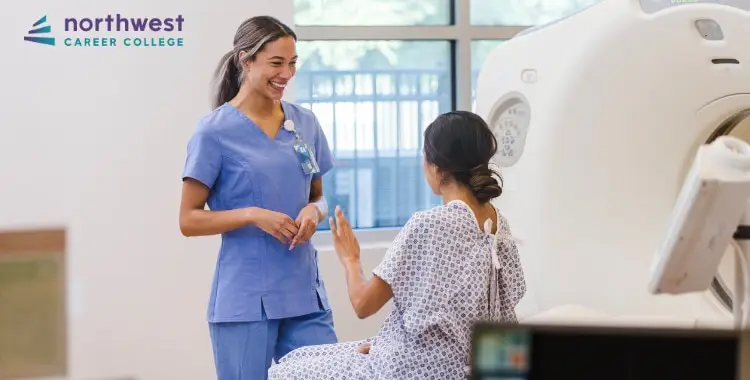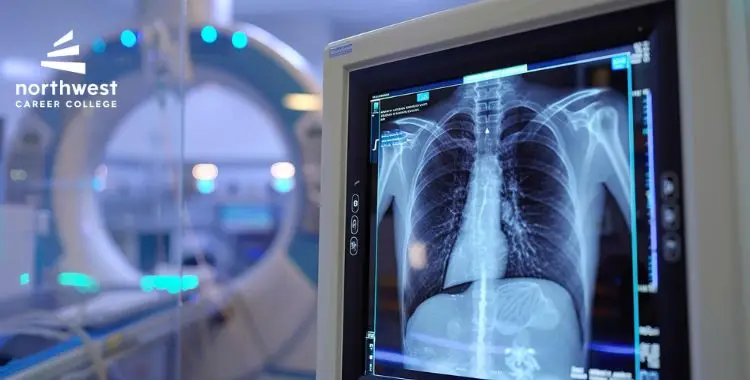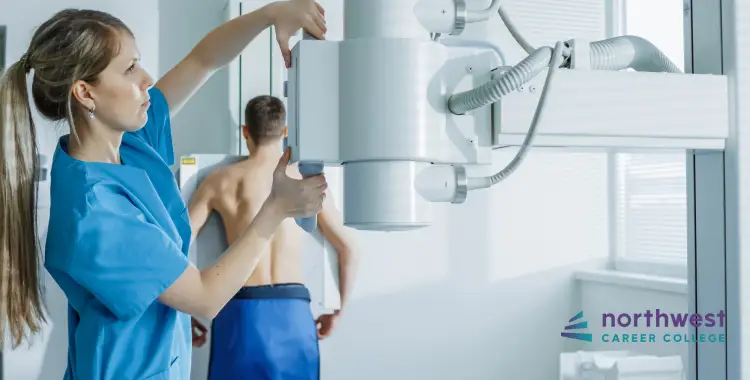Continuing Education: The Next Steps After Your Radiography Program – Part 1
- March 27, 2024
- 2.7k views
- 4 min read

Have you recently completed or are you about to complete your associate’s degree in radiography? If so, this article is for you.
We know it can be simultaneously exciting and nerve-wracking to enter the “real world” of the radiology field after spending such a long time in school. There is so much build-up and anticipation as you prepare to graduate and take your licensing exam that it can often be a bit of a letdown once you get past that final hurdle. It’s perfectly normal to wonder…What’s next?
Well, the journey doesn’t stop here! Continuing education is an excellent way to keep expanding your skillset now that you have mastered the fundamentals. CE will help you stay up-to-date with the latest in the radiography industry and may even help boost your career to new heights. Plus, it’s required to maintain your license, so you might as well embrace it and get the most out of it!
This article will explore why hitting the books (again) might be one of the best moves you can make, especially as a recent graduate entering the radiography field.
Table of Contents
Dive Deeper into Specializations
In case you haven’t figured it out by now, radiography is a field with TONS of career paths to explore. While you already have several different career paths available to you as a radiography program graduate, there are many more if you pursue additional education to expand your skill set. Peruse the ARRT website, and you will get the picture…there are lots of options. That said, here are some insights into why you might want to consider specializing.
Stand Out in the Job Market
Radiography graduates who pursue additional training in specialized areas like MRI, CT, or mammography can stand out in a crowded field of prospective employees.
Employers often look for technologists with specific skills to fill niche roles on their teams…and these positions tend to be more stable because they are harder to fill. Depending on where you live, most if not all of these specialties require additional certification and licensure, adding a layer of security for you and your career path.
Higher Earning Potential
Considering the additional education, certification, and licensure required to specialize in certain sub-fields of radiography, it should come as no surprise that specialists tend to earn more.
This high earning potential is further reinforced because the pool of individuals who have pursued this additional education is smaller, so employers are forced to pay up for the talent if they want to fill their open positions. For instance, according to the Bureau of Labor Statistics, MRI technologists earn about 10% more on average than general radiologic technologists.
It’s like leveling up in your favorite game…your rewards typically keep increasing as you achieve higher levels.
Keep Your Day-to-Day Interesting
Specializing can keep your work life exciting. Most new graduates do not immediately pursue additional education (let’s get real, the last two years were exhausting enough…who wants to go right back in for more!). However, after radiologic technologists have spent some time in the field and mastered their craft, their jobs can become a bit routine (as is true in almost every industry).
Many people enjoy refining and mastering their craft, and there is absolutely nothing wrong with that! Others may want the challenge of a new set of job responsibilities that can be difficult to obtain after years or decades in the same industry. Thus why specializing can become more appealing for experienced professionals in the field. Each specialization area comes with its own set of challenges and learning opportunities.
Conclusion
Continuing education offers numerous benefits to radiologic technologists. We spoke about a few of them in this article, and we will expand upon these concepts and more in Part 2 of this multi-part article. Stay tuned for more details next month!




